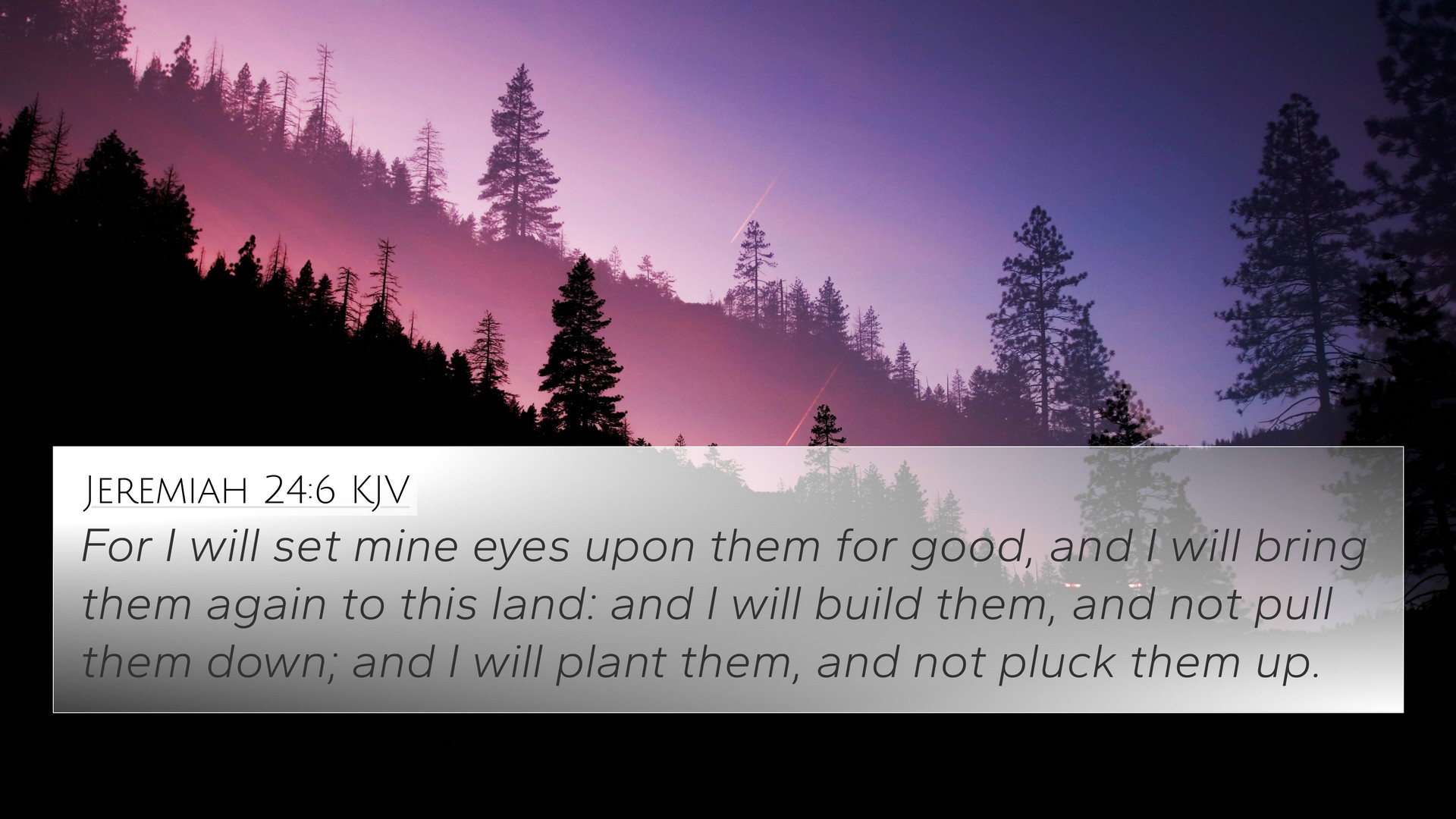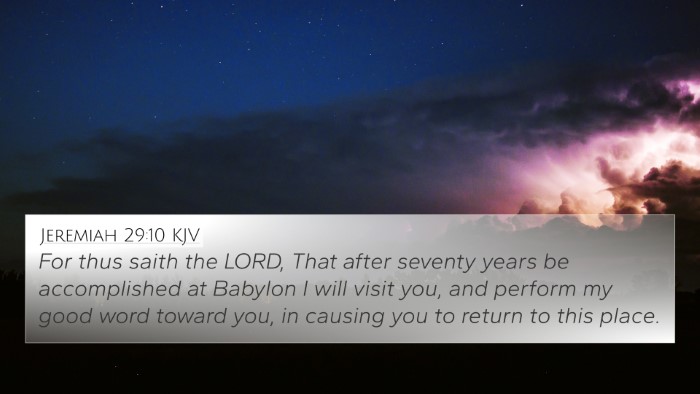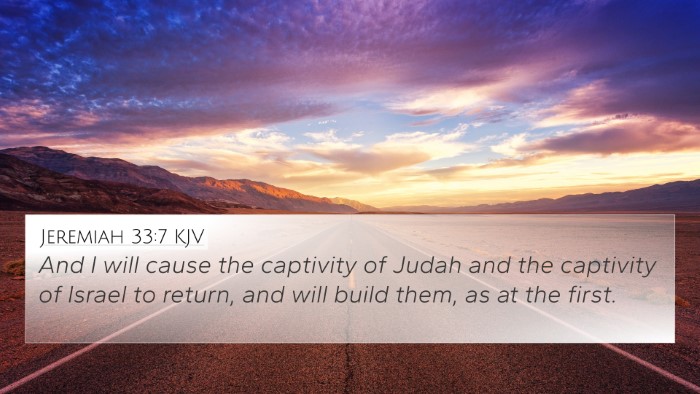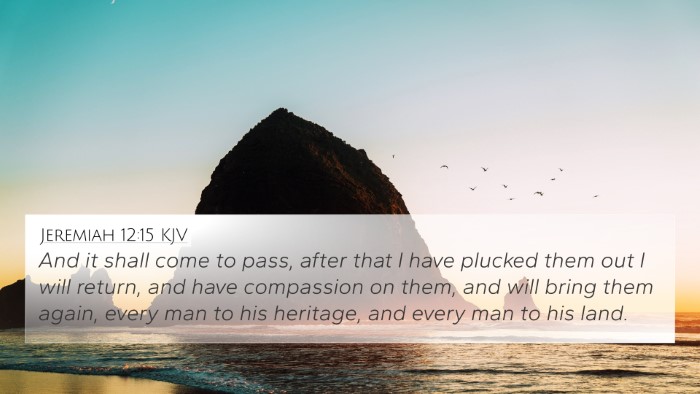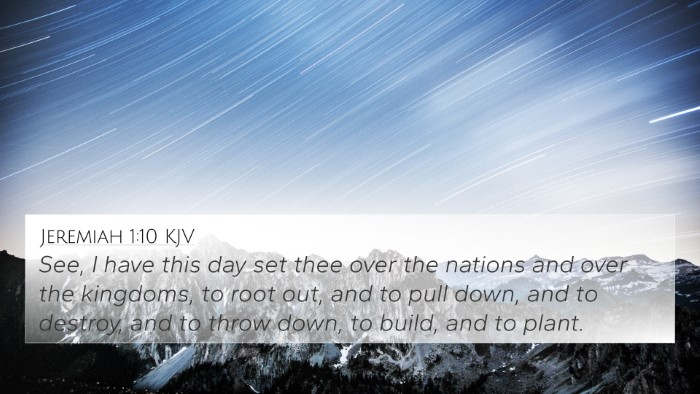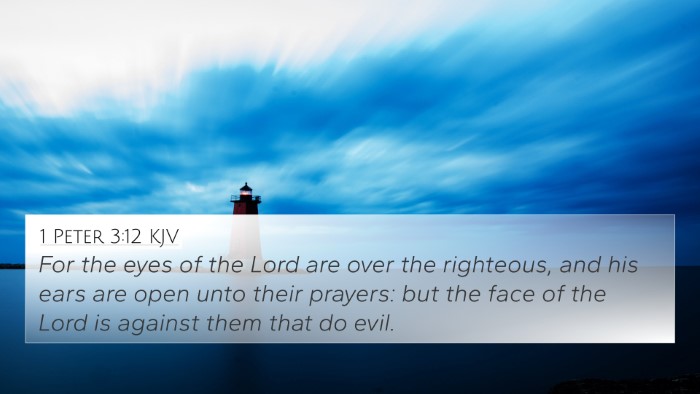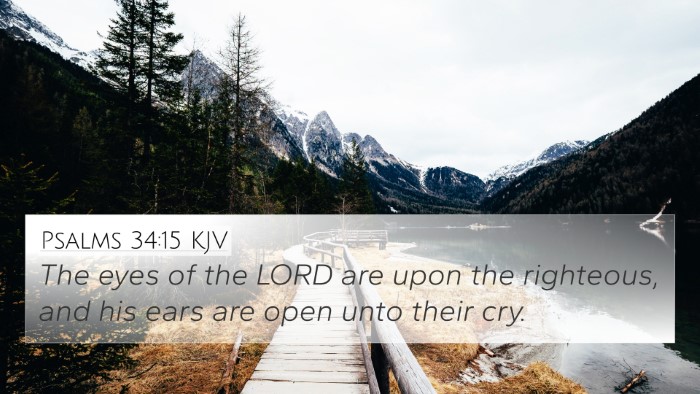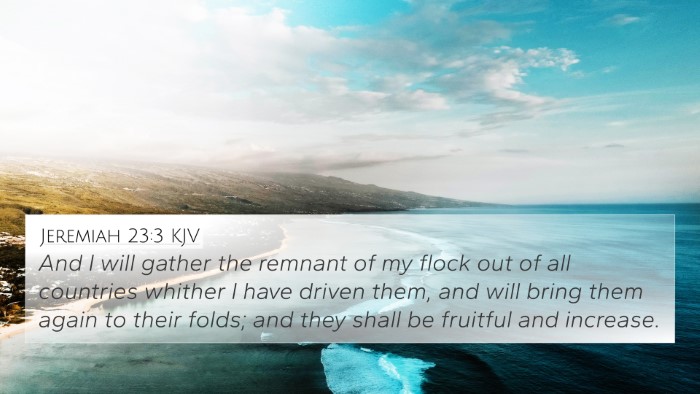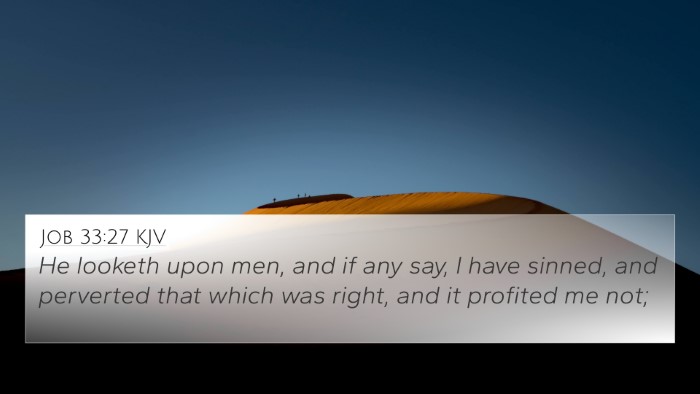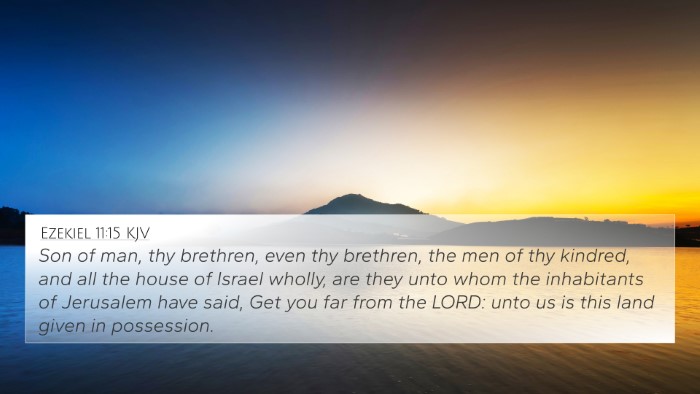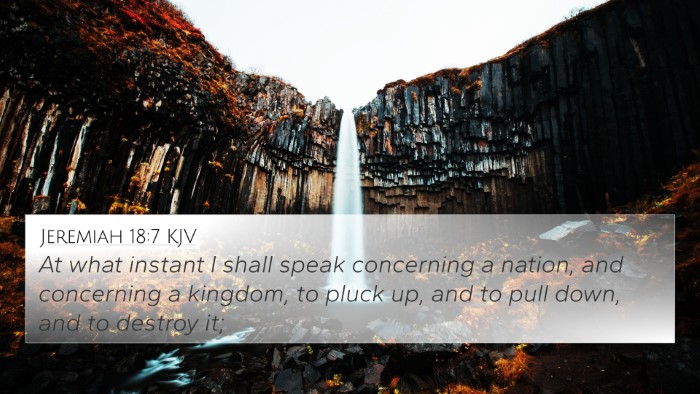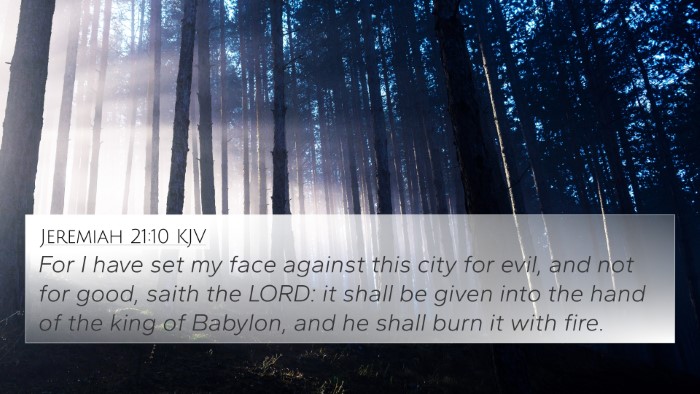Understanding Jeremiah 24:6
Jeremiah 24:6 states: "For I will set my eyes upon them for good, and I will bring them again to this land: and I will build them, and not pull them down; and I will plant them, and not pluck them up." This verse is part of a divine promise delivered through the prophet Jeremiah, highlighting God's faithfulness and commitment to His people.
Summary of Insights from Commentaries
This verse encapsulates several key themes emphasized by biblical scholars, including God's protection, restoration, and the covenantal relationship He maintains with His people. Below are insights from notable public domain commentaries:
Matthew Henry's Commentary
Henry emphasizes the grace of God in His promise of restoration. He notes that God’s eyes are upon His people, signifying divine awareness and active involvement in their lives. The intention is not merely to bring them back but to ensure they are rebuilt and replanted in a state of favor and blessing. This demonstrates God’s loving care and paternal heart towards His covenant community.
Albert Barnes' Notes on the Bible
Barnes highlights the dual aspect of God's promise in this verse: protection and rebuilding. He points out that "to set my eyes upon them" indicates a protective oversight, while the acts of building and planting signify a renewing process of His relationship with them. Barnes asserts that God's intentions are for their ultimate good, providing both physical and spiritual restoration, connecting to the broader biblical theme of hope and renewal.
Adam Clarke's Commentary
Clarke notes the significance of the agricultural imagery used in this verse. "Building" and "planting" represent new beginnings and growth, which underline God's desire to see His people thrive. He also reflects on the historical context, where this promise comes after a period of exile, hinting at God's larger redemptive plan that continues beyond immediate circumstances.
Cross-References and Connections
Jeremiah 24:6 can be linked to numerous other Bible verses that deepen our understanding of God's promises and restoration. Below are key references and themes that are interrelated:
- Jeremiah 29:11 - "For I know the thoughts that I think toward you, saith the Lord, thoughts of peace, and not of evil, to give you an expected end." This verse supports the theme of God's plans for prospering His people.
- Isaiah 61:4 - "And they shall build the old wastes, they shall raise up the former desolations, and they shall repair the waste cities, the desolations of many generations." Emphasizes God's restoration work.
- Romans 8:28 - "And we know that all things work together for good to them that love God, to them who are the called according to his purpose." This New Testament affirmation links back to God's overarching plan for His people.
- 2 Corinthians 5:17 - "Therefore if any man be in Christ, he is a new creature: old things are passed away; behold, all things are become new." Reflects the concept of renewal and rebirth.
- Psalm 126:1 - "When the Lord turned again the captivity of Zion, we were like them that dream." A direct reference to God’s redemption of His people.
- Zechariah 1:16 - "Therefore thus saith the Lord; I am returned to Jerusalem with mercies: my house shall be built in it." Highlights God's returning mercy and the rebuilding of His presence among His people.
- Ezekiel 36:33 - "Thus saith the Lord God; In the day that I shall have cleansed you from all your iniquities I will also cause you to dwell in the cities, and the wastes shall be builded." Reinforces the promises of restoration closely associated with purification.
- Matthew 9:37-38 - "Then saith he unto his disciples, The harvest truly is plenteous, but the laborers are few; Pray ye therefore the Lord of the harvest, that he will send forth laborers into his harvest." This draws a connection to the themes of planting and laboring in God’s vineyard.
- Revelation 21:5 - "And he that sat upon the throne said, Behold, I make all things new." This ultimate promise of restoration culminates in the New Jerusalem.
- John 15:2 - "Every branch in me that beareth not fruit he taketh away: and every branch that beareth fruit, he purgeth it, that it may bring forth more fruit." This verse relates to God as a gardener, pruning His people for greater productivity.
Thematic Bible Verse Connections
Jeremiah 24:6 serves as a nexus for several biblical themes, particularly those that explore divine oversight, restoration, and covenant faithfulness. These themes are interwoven throughout both the Old and New Testaments, providing a rich tapestry of connections that reveals God's ongoing commitment to His people:
- Restoration and Renewal: The Bible frequently emphasizes God's desire to restore His people, making Jeremiah 24:6 a critical verse for understanding restoration theology.
- Covenant Faithfulness: God's covenant is central to understanding His interactions with humanity; this verse’s promise embodies His unwavering faithfulness.
- God's Sovereignty: The verse reflects the overarching sovereignty of God in orchestrating the events of history for the benefit of His people.
- Hope and Encouragement: Jeremiah 24:6 is a source of great encouragement, reminding readers that despite past afflictions, God offers hope for the future.
Bible Study Tools for Cross-Referencing
To delve deeper into cross-references related to Jeremiah 24:6, numerous tools can be utilized:
- Bible Concordance: A comprehensive tool for identifying related verses and themes.
- Bible Cross-Reference Guide: This guide assists in navigating through different scriptural connections.
- Bible Cross-Reference System: Many modern translations include a cross-reference system to aid study.
- Cross-Referencing Bible Study Methods: Techniques and methods for effectively studying cross-referenced biblical texts.
Conclusion
In summary, Jeremiah 24:6 offers profound insights into God’s restorative promises towards His people. The interpretations drawn from commentaries reveal themes of hope, divine oversight, and the transformative power of God's covenant. By exploring cross-references, we can uncover the rich interconnections within Scripture, deepening our understanding of God’s word and its application in our lives.
